I want to tell you why you don't want to be lucky, or at least not in the way that you think.
There were two specific experiences that really made me reevaluate the way that luck works and made me think to myself: what does it really mean to be lucky? It may seem that you're lucky at first, but actually, things may work out very differently in the end. I will narrow down these experiences over the course of a few years, and they are my experiences in learning No-Limit Hold'em and Pot-Limit Omaha; they're opposite sorts of experiences.
In No-Limit Hold'em, when I first started playing, I got my ass kicked. I got cheated, I got made fun of, I sucked, I ran really bad, and I got cooler. It seemed like I couldn't win no matter what. But guess what? I was playing what I thought was kind of high stakes, and I lost a few thousand dollars over the course of a few months. I even got a job at McDonald's, by the way, and made $1,000 in a month. I was getting my ass kicked; it was not a fun time.
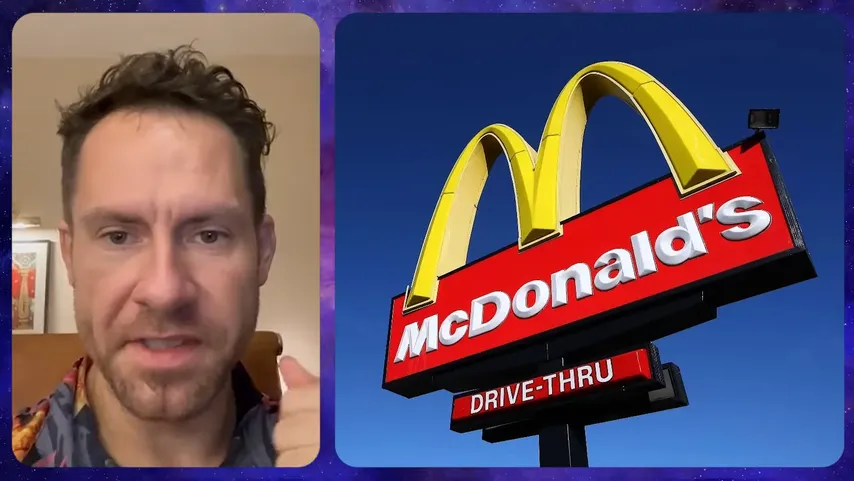
Slowly, things got better. I was happy to win just a few hundred at first; I was just like, "Oh my God! I won $300!" I returned a deposit online and was happy to play small stakes. I ran it up to $350 but had my account locked for a few months. After a few months, it was unleashed when I was 18, and I was slowly grinding up more and more. Things were getting better and better until I got to about $2,000 or so—$3,000.
I won my money back and realized that after six months, I had just won my money back. During this time, I was reading about Andy "The Giant" Donnie Stern and how his rise was so meteoric and fast; he won tournaments quickly. I thought to myself that I didn't really compare to this guy.
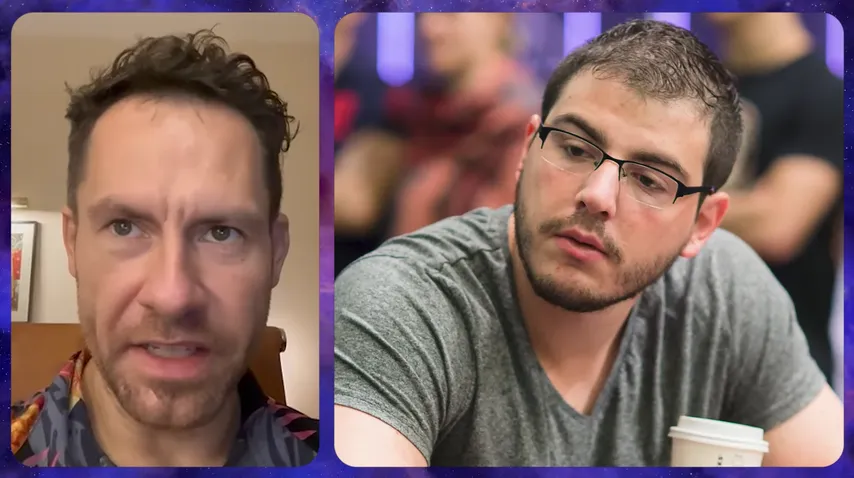
Shortly after that, however, I won a tournament for $5,000. As an act of destiny of sorts, it seemed fitting that I won it with what was my favorite hand at the time: King-4 offsuit.
From there—this was 2007—I believe until 2010, my rise was meteoric and even surpassed Donnie's and even surpassed the coaches that right after I got that money from. I deposited on CardRunners.com and learned more from all those coaches—some of the best coaches in the world—and eventually beat all of them. I surpassed all of them and became basically the top player with the biggest bankroll in Full Tilt while beating all the world legends at No-Limit Hold'em.
Now let's contrast this with Pot-Limit Omaha (PLO). When it came to PLO, I had a bit of the opposite experience going on. I was already on top of the world learning PLO; you could say I was prudent enough to decide to learn at "small stakes"—$10-$20—and $22,000 buy-ins where you can easily lose $20,000. At that time, I didn't really know much about what I was doing. However, I got some coaching and realized that I sucked.
Interestingly enough, during this period in PLO, despite not being an expert yet, my results were quite good; in fact, I ran between $1 million and $1.5 million over EV and beat many of the best players in the world at PLO—Ryan Townsen, Cole South—those guys at the time along with Brian Hastings and Patrik Antonius. But like I said earlier, I was running way over EV. 2011 rolled around.
I played against Gus Hansen at $500-$1K, plus XWink and Phil Ivy at $5-$10K cap games where things turned sour quickly as I lost a million-ish during a downswing. My all-in EV started catching up to me; one day alone, I lost a million dollars playing against Phil Ivy on Full Tilt at $5-$10K cap—I got completely smashed! That was a terrible day.
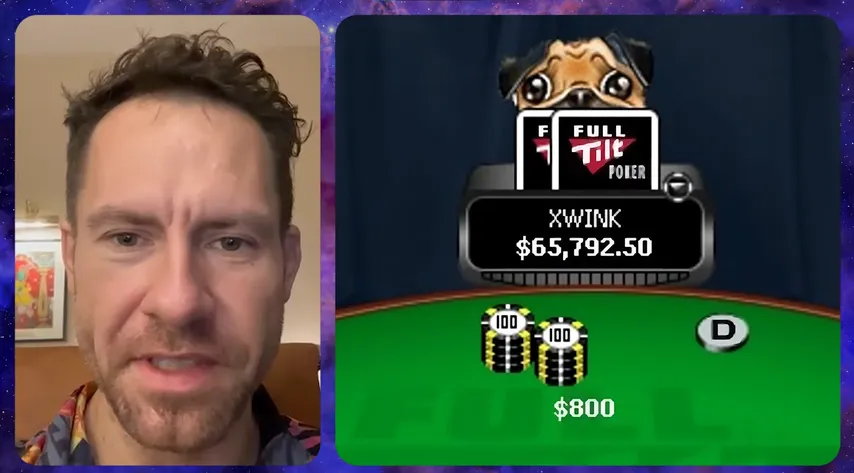
As my EV caught up with me over these next several months, my bankroll—which had been around $5 million—slowly dripped down to $3.5 million or so. It wasn’t just one bad day; there were many horrible days during this period...
I had a day where I lost like $400,000 at $25-$50, and this was kind of close to the end when Black Friday happened. It looked like basically I just wasn't as good as I thought I was. I was ultra-stressed; even though things began really great in the beginning, my leaks had caught up to me, and then I slowly paid for them as time went on.
Analyzing Both Experiences
You can see two very different experiences here: one where all my leaks hit me right at the beginning, and a lot of unfortunate stuff happened early on. Unfortunate, by definition, means that it's not going to last forever. So when things ended up being more and more fortunate, my experience got better and better.
In contrast, when I played Pot-Limit Omaha, I was on top of the world for a long time. Things were going pretty great, and I wasn't getting punished for my leaks. I was running over EV, and nothing bad was happening—until suddenly, I started losing. At some point, I began getting smashed and crushed again, with lots of bad things happening.
I was grinding it out and trying to get out of the downswing, battling hard, and then realized: "I wasn't as good as I thought I was."
Now you can see that the whole point of this is that in the beginning, my luck seemed like it was s*** —but was it? This idea of things getting better versus worse actually has loads of parallels in real life as well. Think about people who get rich because they're lucky or because they made all their money quickly or even those who were born into wealth. Think about the experience of those people: who cares if you're really rich if your life sucks? Or what if you're really poor but everything seems like a blessing? If things are constantly getting better—that's a far superior situation than being really rich while things get worse and worse.
This perspective champions the idea that you want to make money the right way – versus making money through stupid means or by relying on luck at the beginning because you'll pay for those eventually.
The leaks will always catch up to you, and you'll have to pay for them at some point or another. You should even be thankful for them because without those leaks—without those negative experiences—there would never be an upside.
If you think about it, the only reason there's an upside is because there's a downside. These concepts are reminiscent of what Machiavelli describes in his book The Prince. He explains that it's much better to be someone who acquires power the right way and learns all the lessons in the beginning than to be someone who is born into power but lacks experience. It's hard to retain power when you're just born into it without knowing what you're doing; there’s a high likelihood of a downward trajectory.
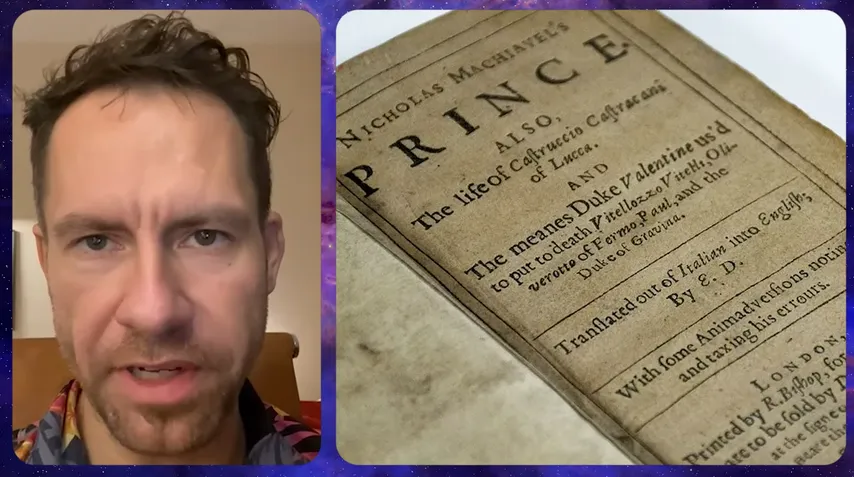
So the bottom line is that appearances can be deceiving, and you're going to pay for your leaks one way or another—in poker and in life. It's best to work on fixing them sooner rather than later so that you can reap the benefits and not have such a frustrating experience.
Ultimately, experience is really the true currency of what you're looking for; what matters is how good you feel and the kinds of things you've experienced along your journey.
Though the best possible experience, by the way, which personally fascinates me, is when I started to contemplate the EV—not just of my poker decisions, but the EV beyond the meta of those decisions and the EV of my life decisions. This is actually an unpredictably positive experience, one that gradually goes up but zigzags in some way. There’s an element of randomness; you don’t want to know exactly what happens all the time. Otherwise, the element of surprise, or the feeling of being pleasantly surprised, can no longer exist. This means you have to deal with the negative downsides of being surprised, but that experience needs uncertainty in order for things to happen.
It turns out, by the way, you don’t want to know everything because if you did, you wouldn’t have so much fun. In his book Elements of Poker, Tommy Angelo describes a game called "Bad Times," where basically the worst possible things happen at unpredictable frequencies—just the nature of randomness. You don’t want to play "Bad Times" too much; maybe you're curious for a little bit, but that’s not what we’re aiming for.
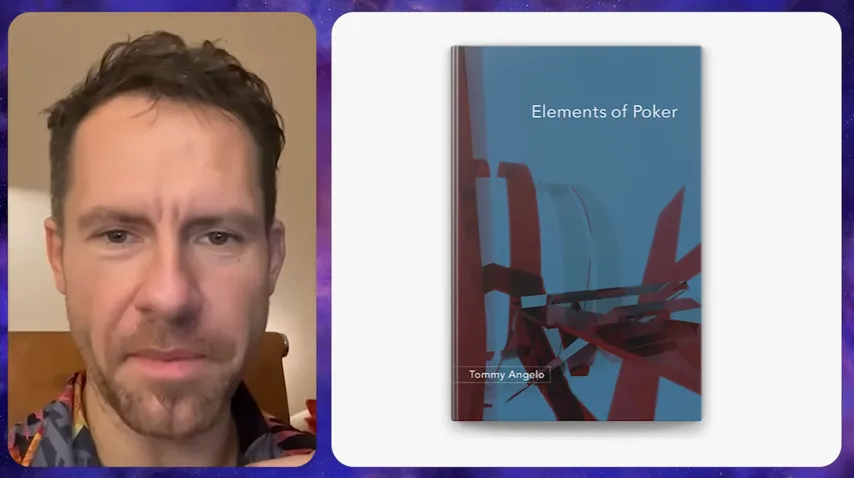
If you think about it, poker—if you play it right—can be the best possible experience. The same is true with real life. If you are a jerk in real life, you're going to get messed up; it may also happen at random intervals that you can't predict, and things will just get worse and worse. However, if you take care of yourself and maintain healthy habits, things can get better and better unpredictably—at least in theory.
So let's aim for that: that's the goal—to create parabolic positive unpredictable experiences. That’s what this channel is about anyway, and that’s why I made the channel. Let’s hope it works!










